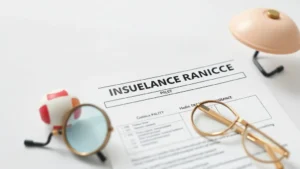Private Health Insurance in Korea for Foreigners: A Comprehensive Guide
Like many expats living in Korea, you’ve probably wondered about private health insurance in Korea for foreigners alongside NHIS coverage. Interestingly enough, over 60% of expatriates choose to supplement their National Health Insurance Service (NHIS) with a private plan—speeding up access to VIP hospitals and covering treatments beyond the public system1. You’re in the right place. In this guide, you’ll learn exactly how private medical insurance works in Korea: eligibility, enrollment steps, coverage options, and why it matters to your peace of mind. We’ll break down key benefits, share expert insights, and give you actionable next steps to secure robust health coverage. Ready? Let’s dive in.
Table of Contents
What Is Private Health Insurance in Korea for Foreigners?
Hook: You might be wondering—what sets private health insurance apart from NHIS? In other words, is it just extra paperwork or a real game-changer?
Context: Private health insurance is a policy offered by local and international insurers that covers services not fully included under NHIS, such as elective surgeries, dental work, and expatriate-friendly perks.
Local companies like Samsung Life and Shinhan offer tailored plans, while global names such as Cigna and Aetna bring international coverage. Policies vary—some focus on inpatient care, others on outpatient visits or alternative therapies. Unlike NHIS, you can choose your network hospital and doctor, often with English support staff.
Example: Anna, a teacher from Canada, enrolled in NHIS but added a private plan for vision and dental care. When she needed root canal treatment, her private insurer covered 80% of the bill—she paid about $50 instead of $200 out-of-pocket.
“Private health insurance in Korea offers expats faster access to care and coverage for treatments outside the national system, making it a valuable supplement to NHIS.” — Pacific Prime (2025)
Takeaway: Review your NHIS benefits and identify coverage gaps—then compare private plans that fill those holes. Start by listing must-have services (e.g., dental, vision) to narrow your choices.
Why Private Insurance Matters for Expats in Korea
Hook: Imagine waiting weeks for a specialist appointment when you need care now?
Context: Although Korea’s healthcare system ranks among the top in OECD efficiency2, public hospitals can get crowded. Private insurance often unlocks VIP wards, shorter wait times, and English-friendly services.
Without private coverage, you may face higher co-pays on elective procedures or be limited to public-sector providers. Expat-focused clinics (like Evita Clinic) report that private plans reduce patient costs by up to 30% on advanced treatments3.
Benefits at a glance:
- Priority appointments and VIP wards
- Broader coverage: dental, vision, alternative medicine
- International portability for travel or relocation
- Lower out-of-pocket max limits
Takeaway: If speed and specialist access matter to you, private insurance is more than a safety net—it’s your express pass. Consider adding basic plans first, then upgrade as needed.
How to Get Private Health Insurance in Korea
Hook: Ready to shop? Let me explain the steps to secure a policy without headaches.
Context: Application processes vary by insurer. Most require your Alien Registration Card (ARC) and NHIS enrollment proof, plus health questionnaires.
Start by gathering key documents: ARC, passport copy, and recent medical exam results if requested. Then, request quotes from at least three providers—local and international—to compare premiums and coverage.
Underwriters assess age, medical history, and risk factors. Some plans impose waiting periods (often 3–12 months) for pre-existing conditions, so apply early.
- Confirm NHIS enrollment (Korean Health Insurance Foreigners 2025).
- List desired coverages (inpatient, outpatient, dental, vision).
- Get quotes online or through brokers like Pacific Prime.
- Submit documents and complete health check if needed.
- Review policy wording—look for exclusions and waiting periods.
Case Study: Mark, an engineer in Seoul, compared Cigna’s expat plan and a local insurer. Although Cigna’s premium was 15% higher, it offered global evacuation—a must for his frequent Asia trips.
Takeaway: Don’t rush. Schedule applications at least one month before your current coverage lapses to avoid gaps.
Choosing the Right Plan: Key Considerations
Hook: There’s no one-size-fits-all—so how do you pick?
Context: Pricing is important, but don’t base decisions solely on cost. Coverage breadth and network size are equally crucial.
Ask yourself:
- Do I need worldwide coverage?
- Which hospitals are in-network?
- Are there copay caps or annual limits?
Look for plans that include tele-health services (growing trend) and free second-opinion consults. If you’re here long-term, consider lifetime renewable policies to avoid age-related rate hikes.
“Foreigners should carefully evaluate their existing NHIS benefits before selecting a complementary private plan—focus on gaps, not just premiums.” — Evita Clinic (2025)
Takeaway: Create a comparison chart listing premiums, co-pays, waiting periods, and network hospitals. Then, score each plan against your personal priorities.
- Private plans fill NHIS gaps.
- Speed and VIP access matter.
- Apply early and compare 3+ quotes.
Future Trends: What’s Next for Expat Healthcare?
Hook: What does tomorrow look like?
Context: Korea is pioneering digital health. Tele-medicine platforms in English are multiplying, making remote consultations a norm for busy expats.
Hybrid models—NHIS plus top-up private coverage—will remain popular. Expect more bundled packages from insurers, combining health, dental, and vision at competitive rates.
Keep an eye on foreign-friendly screening services. Institutes like KMI now accept global insurance plans, offering comprehensive check-ups with same-day results.
Takeaway: Stay updated. Subscribe to insurer newsletters and expat forums for early alerts on new plan launches or regulatory changes.
FAQ
- Do I need private insurance if I have NHIS?
- NHIS covers basic care, but private insurance offers faster access, VIP services, and fills coverage gaps like dental and vision.
- Can I buy private insurance before NHIS enrollment?
- Most insurers require NHIS enrollment proof, but some international plans allow coverage prior to ARC issuance.
- How much does private insurance cost?
- Premiums range from $30 to $200/month, depending on age, coverage, and provider. Always compare quotes.
Conclusion
Private health insurance in Korea for foreigners isn’t just an add-on—it’s a smart strategy to secure timely, comprehensive care. We’ve covered what private plans are, why expats value them, how to apply, and how to choose wisely. Now it’s your turn:
- Review your NHIS benefits and note coverage gaps.
- Get quotes from at least three insurers, local and international.
- Select a plan that balances cost, network, and perks.
The bottom line is clear: combining NHIS with a tailored private plan delivers peace of mind and keeps you healthy—no matter where life (or work) takes you. Secure your coverage today and stay focused on enjoying your time in Korea.





